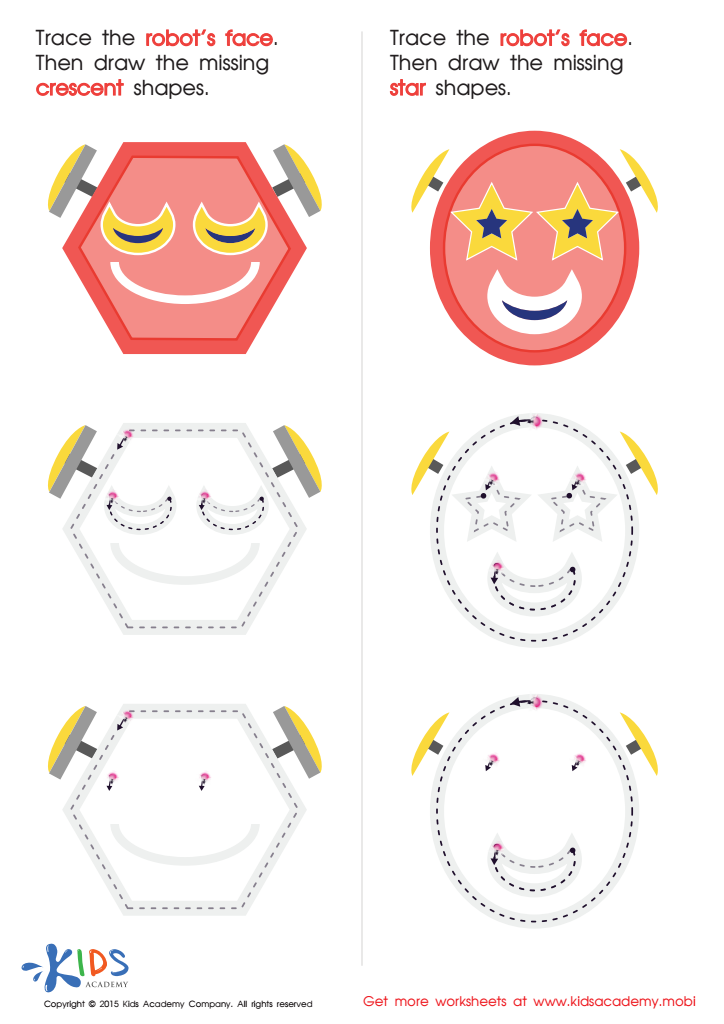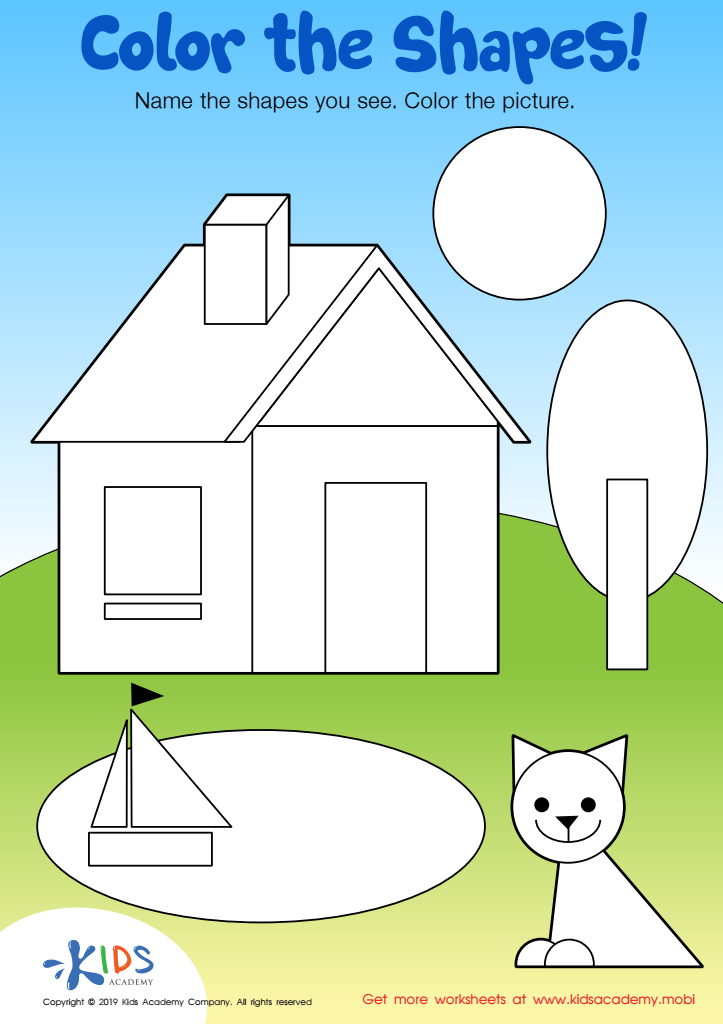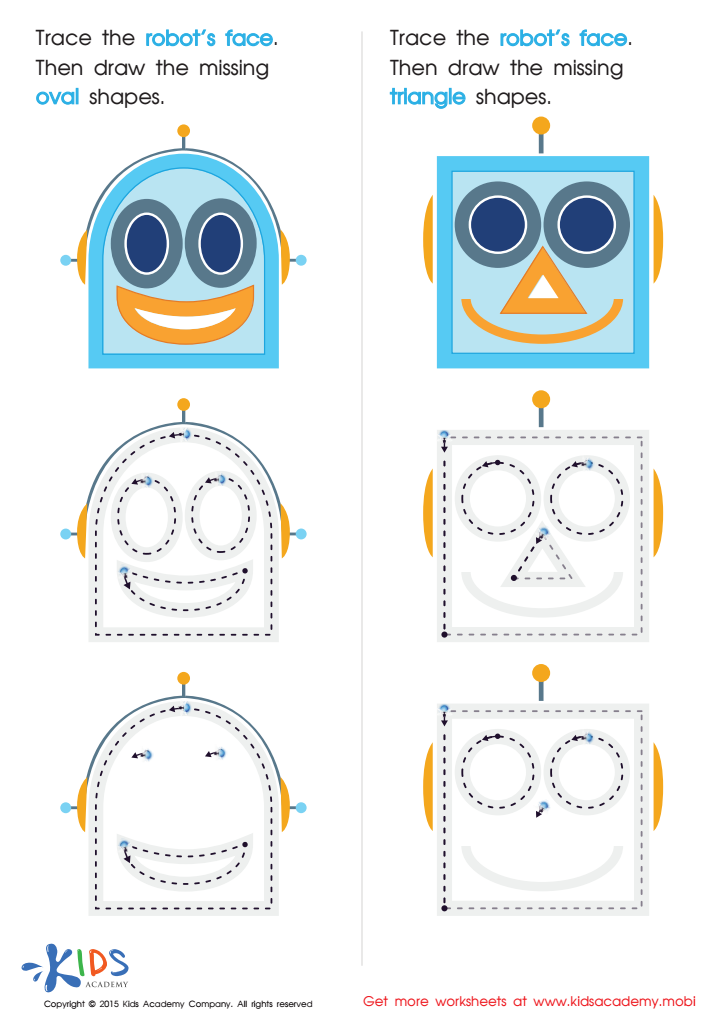Shape Recognition Easy Geometry Worksheets for 4-Year-Olds
3 filtered results
-
From - To
Discover our engaging "Shape Recognition Easy Geometry Worksheets" designed specifically for 4-year-olds! These worksheets provide a fun and interactive way for young learners to explore basic shapes and develop essential geometry skills. Crafted with vibrant visuals and simple activities, our resources help children identify, compare, and categorize shapes in an enjoyable learning environment. Perfect for parents and teachers alike, these worksheets promote cognitive growth, fine motor skills, and critical thinking through play-based learning. Download your free worksheets today and inspire your child’s love for math, setting a solid foundation for future learning in an exciting and effective way!


Composing a Robot's Face of Crescents And Stars Worksheet


Color the Shapes Worksheet


Drawing Ovals And Triangles with Fun Printable
Shape recognition is a foundational cognitive skill that is essential for children's early mathematical understanding and overall development. For 4-year-olds, engaging in shape recognition and easy geometry activities helps enhance critical thinking, spatial awareness, and problem-solving abilities. When parents and teachers prioritize shape recognition, they are laying the groundwork for more complex mathematical concepts in later years.
At this age, children are naturally curious and motivated to explore their environment. Learning shapes through fun and interactive activities can make mathematics enjoyable, fostering a positive attitude toward the subject. By incorporating shape recognition into daily play and learning, children not only grasp essential geometric concepts but also learn to categorize and make connections between objects, setting the stage for enhanced comprehension in subjects like science and language arts.
Moreover, recognizing and naming shapes aids in vocabulary expansion, improving language skills, as children learn to describe their world. Early shape recognition activities can equally boost fine motor skills through drawing and crafting. Ultimately, by focusing on easy geometry for 4-year-olds, parents and teachers empower children to develop essential skills that will serve them throughout their educational journey and beyond. It's an investment in their future success and confidence in learning.
 Assign to My Students
Assign to My Students


























